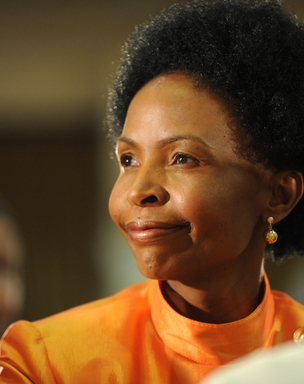This year was a mixed bag for South Africa’s chief ambassador. Maite Nkoana-Mashabane bore the brunt of having to defend one diplomatic blunder after the other, while benefiting from Pretoria’s image as a respected player in global affairs.
When Nkoana-Mashabane admitted in an interview with the Mail & Guardian in June that a diplomat’s job is to “put out fires”, some said she should have ensured South Africa didn’t start those fires in the first place. For her, it was an acknowledgement that her job is not easy, but that she is up to the task.
Refusing the Dalai Lama a visa for the third time in five years underlines the policy of cowardice that South Africa has shown in an effort to placate countries such as China and discredits the bulk of the good diplomatic policies Pretoria has formulated.
The Democratic Alliance spokesperson on international relations, Stevens Mokgalapa, says South Africa has “abandoned its moral human rights policy” and chosen the path of “economic diplomacy”.
Other issues that drew his criticism were the spat between Kigali and Pretoria, which saw the two countries expelling each other’s diplomats, and the continuously fraught relationship with Nigeria.
“China has certainly dictated South African foreign policy on many fronts,” Mokgalapa said. But those who support Nkoana-Mashabane’s approach say she is doing exactly what is expected from a chief diplomat because “foreign policy is about national interest” and “China as our biggest trading partner feeds our economy”.
Her leadership is credited with ensuring Pretoria’s “timely and strategic” reading of changes that come as the economic balance of forces shifts towards China.
The chairperson of Parliament’s international relations portfolio committee, Siphosezwe Masango, says economic benefits such as the Brazil, Russia, India, China and South Africa (Brics) development bank are the result of Nkoana-Mashabane’s foresight. As the only African country that is part of the Brics economic bloc, South Africa is emerging as a key global player.
Both her critics and supporters praise South Africa’s appointment as chair of the South African Development Community’s organ on politics, security and defence co-operation, and being elected to the African Union peace and security council until 2016.
Nkoana-Mashabane can also claim credit for South Africa’s swift intervention in the Lesotho conflict earlier this year, helping avert another coup.
What her ministry has failed to do is to improve South Africa’s image among ordinary African citizens, who still see Pretoria as wanting to be the continent’s Big Brother.
South Africa also demonstrated leadership in human rights when it became the only African country to vote in favour of a resolution on sexual orientation and gender identity at the United Nations Human Rights Council.
Unlike some of her Cabinet colleagues, Nkoana-Mashabane enjoys harmonious relations with Parliament, with MPs saying she is approachable and willing to speak with legislators.

